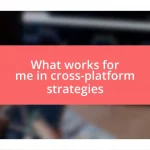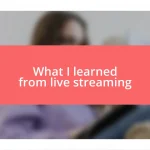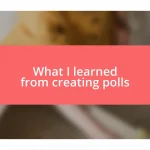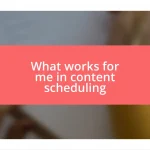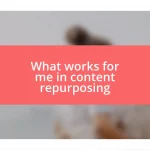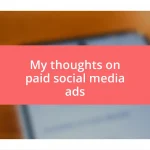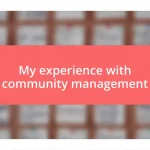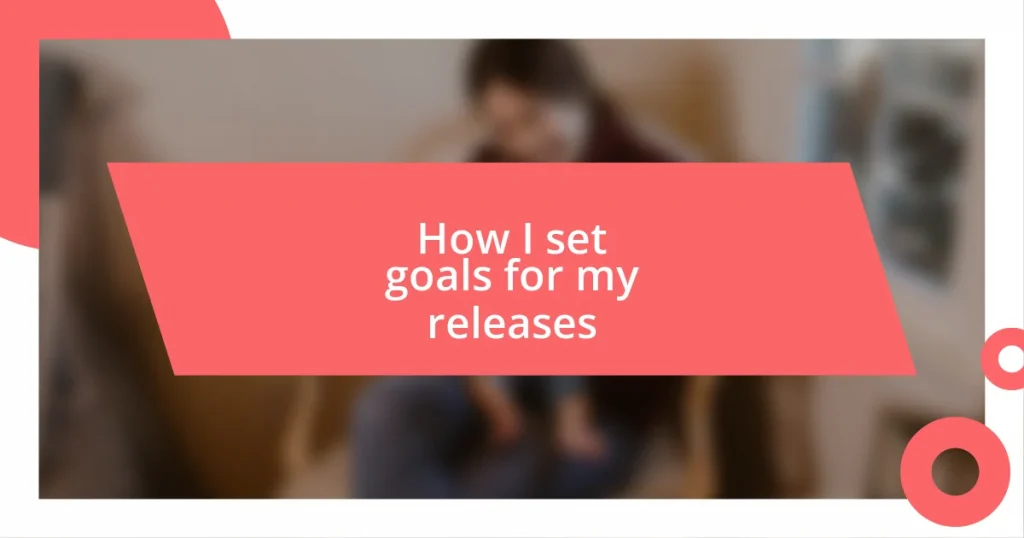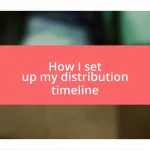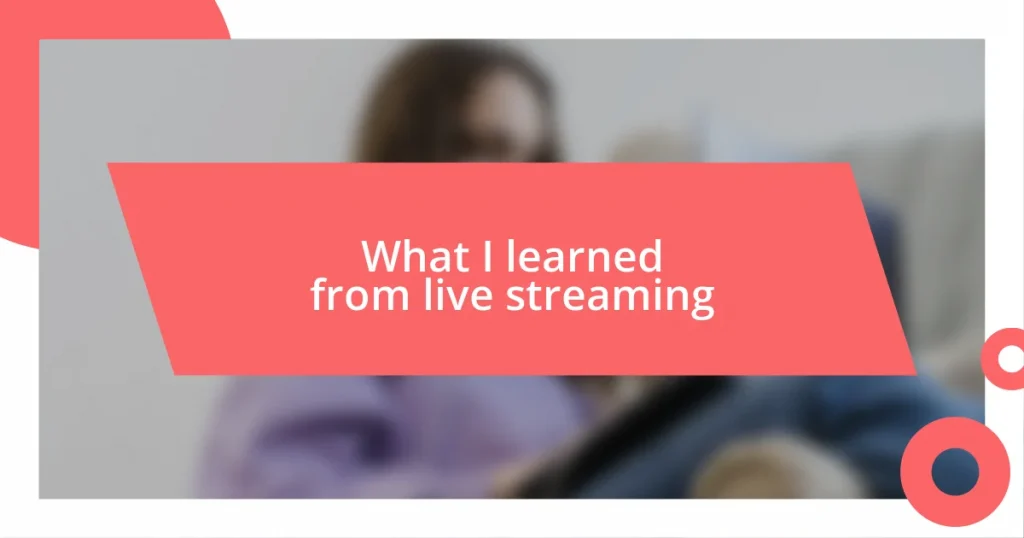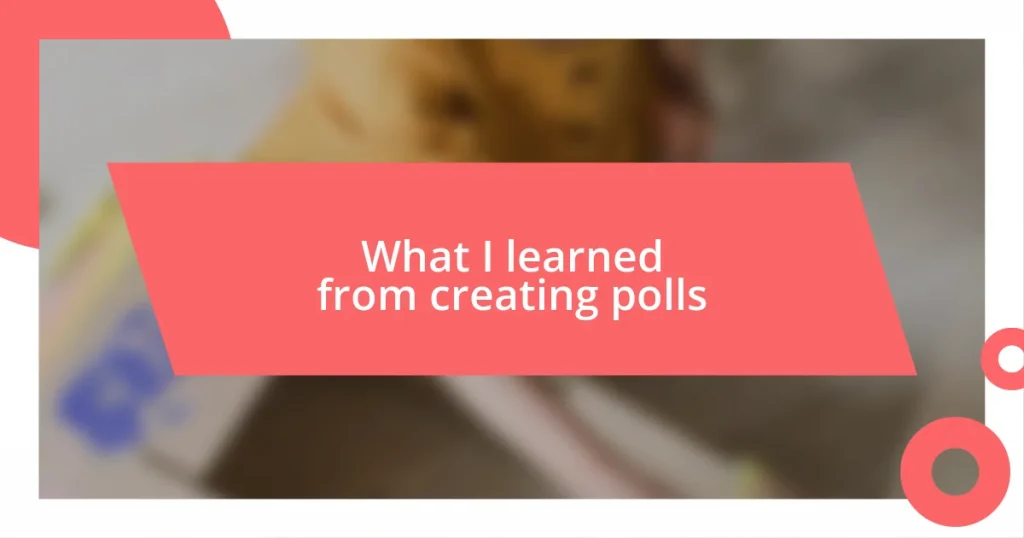Key takeaways:
- Setting specific, measurable goals provides direction and motivation in the creative process, transforming vague aspirations into actionable milestones.
- Regularly tracking progress and adjusting goals based on feedback allows for continuous improvement and strengthens the connection with the audience.
- Celebrating both successes and lessons learned fosters a positive mindset, enabling artists to reassess their strategies and aim higher in future endeavors.
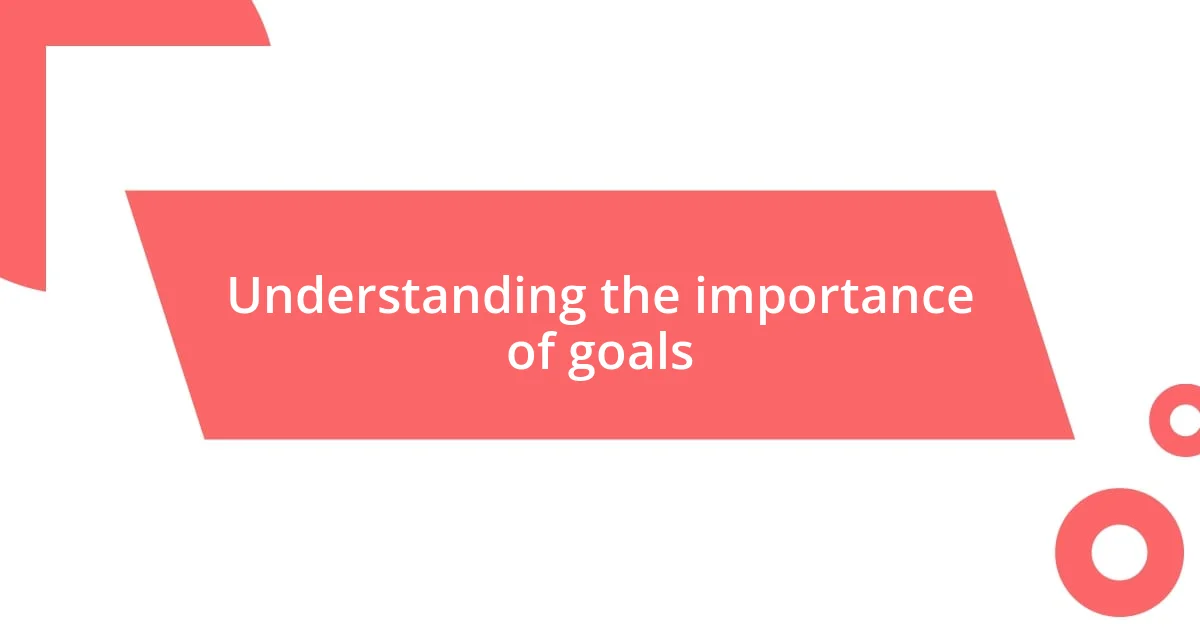
Understanding the importance of goals
Goals are more than just targets; they’re the roadmap that guides our journey in the creative process. I remember a time when I set a vague goal just to “improve my music.” Without clear benchmarks, I felt lost and frustrated. Have you ever found yourself wandering aimlessly? That experience taught me that specific, measurable goals provide direction and motivation, turning dreams into achievable milestones.
When I reflect on my release strategy, each goal serves as a touchstone along the way, reminding me of why I started. A few years back, I aimed to release an EP within six months. It was challenging, but breaking it down into actionable steps kept me focused and helped ward off that overwhelming feeling of self-doubt. Remember, can you recall a time when a concrete goal sparked your creativity and propelled you into action?
Without goals, our efforts can feel scattershot, lacking purpose. I’ve felt the weight of that aimlessness before, often resulting in demotivation. Each goal I set has become a source of inspiration, creating a sense of accountability and urgency. How can we not embrace the clarity that comes from defining our aspirations? It’s through these goals that I uncover resilience and passion that propel me forward in my endeavors.
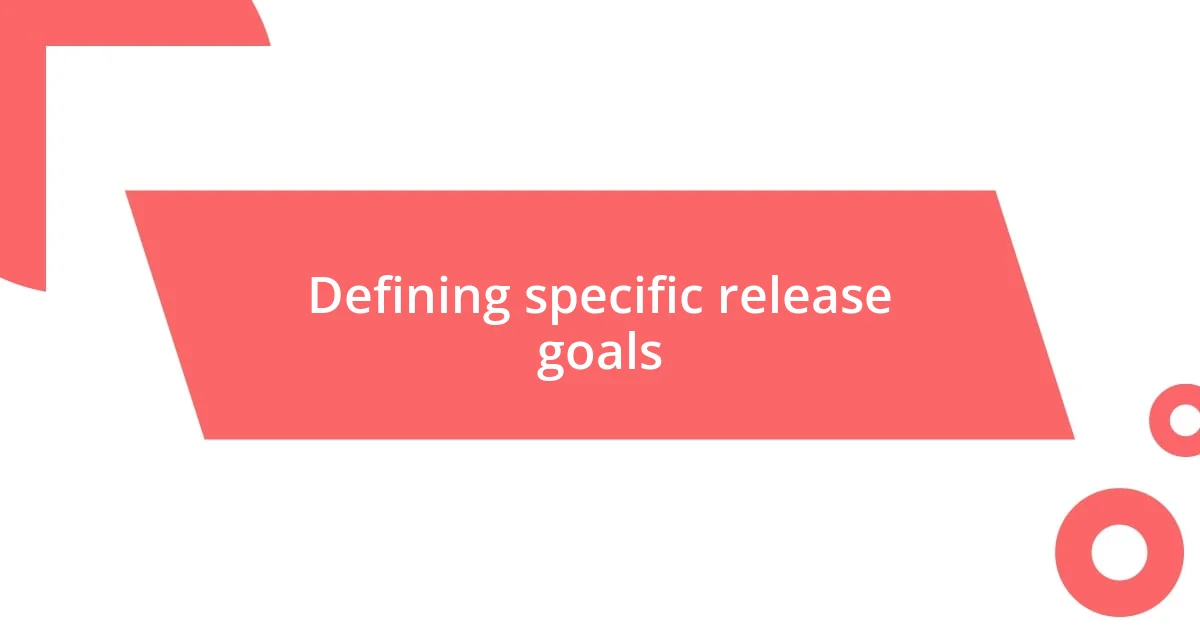
Defining specific release goals
When I think about defining specific release goals, I often refer back to a moment when I decided to set a goal for a single release. Instead of just saying I wanted it to do well, I pinpointed a target: I aimed for 5,000 streams in the first month. This clear benchmark transformed my approach. I had something tangible to aim for, which influenced everything from my promotional strategies to the way I engaged with my audience. I truly believe that when goals are specific, they spark a fire in our creativity.
Here are some critical elements I consider when setting specific release goals:
- Measurable outcomes: Define what success looks like, such as streaming numbers or social media engagement.
- Time frames: Establish deadlines to create urgency and keep momentum.
- Target audience engagement: Identify how you will connect with your audience, whether through live events or social platforms.
- Learning objectives: Set goals around what you want to learn or improve upon with each release, be it songwriting, production, or marketing.
- Emotional connection: Consider what emotional impact you want your release to have on listeners, guiding your creative decisions.
By focusing on these aspects, I find that my releases become not just hopes but actionable paths, leading me and my audience toward a shared experience.
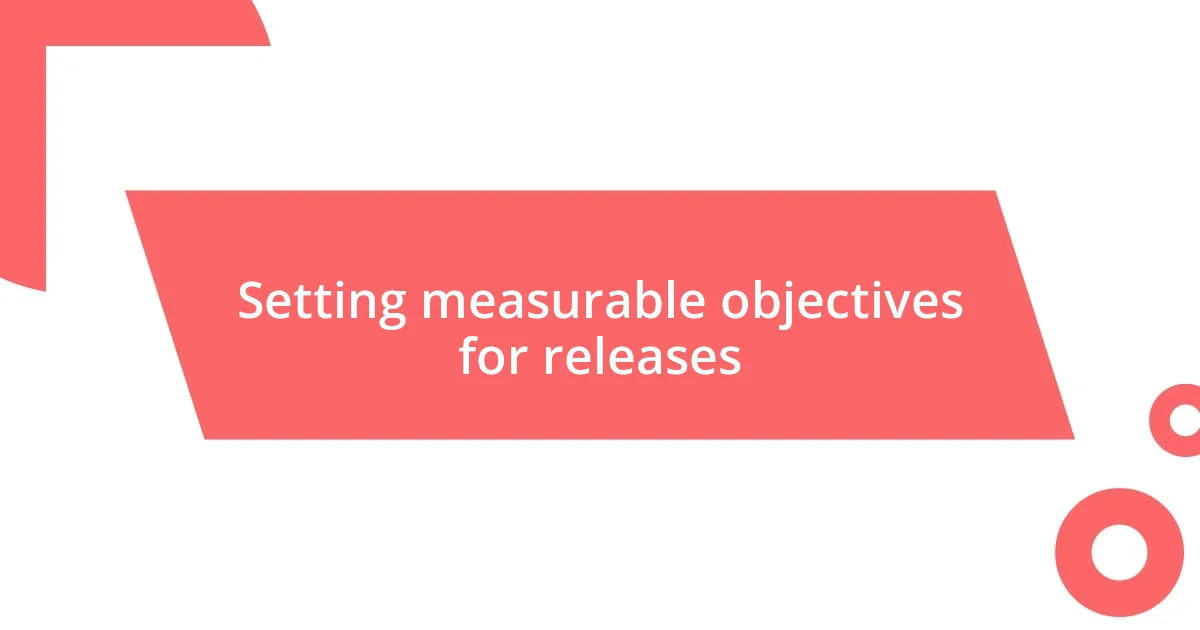
Setting measurable objectives for releases
When it comes to setting measurable objectives for releases, I’ve found that having quantifiable targets is essential. For example, during one project, I decided to track the number of playlist placements I was aiming for—specifically, ten placements in notable playlists within three months. This clarity allowed me to design a targeted outreach campaign that truly paid off. Have you ever set a number that pushed you to explore new avenues? Those specific targets can breathe life into strategies that might otherwise feel routine.
I also focus on breaking down my objectives into smaller, bite-sized pieces. Recently, I aimed for 1,000 new followers on my music platform over two months, which felt daunting until I realized it meant gaining just 16 new followers a day. This simple division motivated me to engage with my audience daily, rather than feeling overwhelmed by the big picture. The small victories along the way kept me inspired. What about you? Do smaller benchmarks help you stay motivated, or is the broader target what keeps you moving forward?
To further solidify my measurable objectives, I continuously evaluate the data my goals produce. For instance, after tracking the performance of my last release’s social media campaigns, I learned which platforms yielded the best engagement and adjusted my efforts accordingly for future releases. By putting emphasis on data-driven insights, I create a healthy cycle of setting, reviewing, and adjusting my measurable goals, ensuring that each release evolves from the lessons learned.
| Type of Objective | Example |
|---|---|
| Streaming Numbers | Aim for 5,000 streams in the first month |
| Playlist Placements | Target 10 placements in notable playlists |
| Social Media Growth | Gain 1,000 new followers in two months |
| Engagement Metrics | Achieve 500 comments on posts |
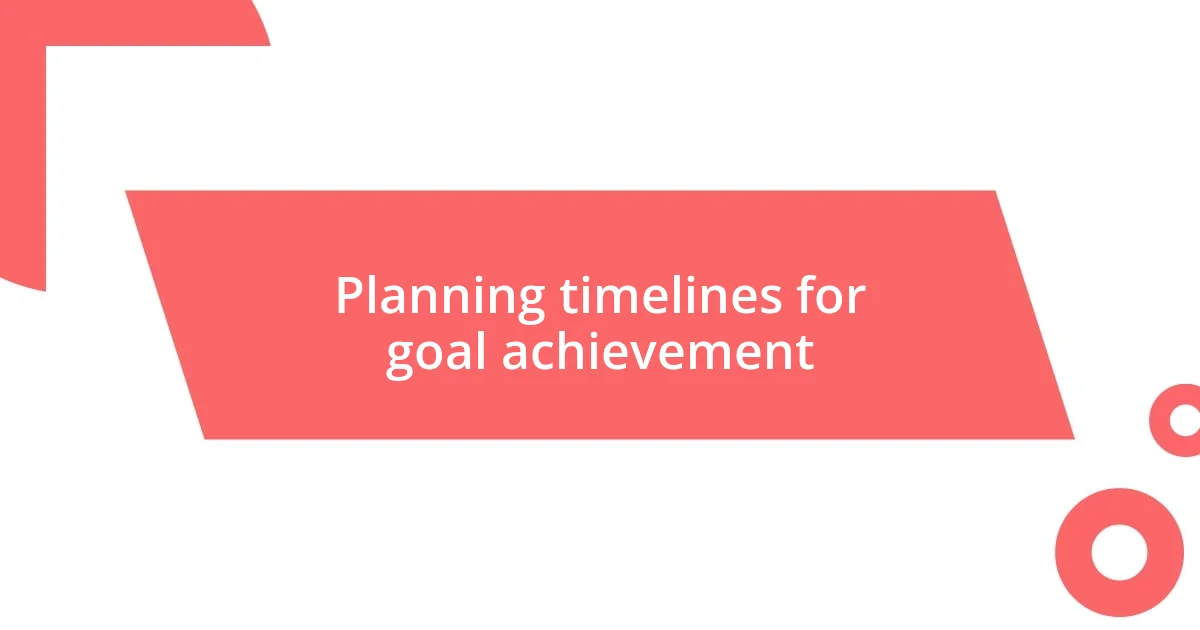
Planning timelines for goal achievement
Planning timelines for goal achievement is crucial. I often find that organizing my release schedule helps me visualize the entire process. For instance, when I planned the timeline for my last album, I mapped out every phase—from recording to promotion. Seeing it all laid out made the daunting task feel more manageable.
One of the strategies that has really worked for me is setting milestone dates. These are moments to check in on my progress and adjust if necessary. When I aimed for a specific track release, I designated checkpoints for when I’d have the artwork, marketing strategy, and social media teasers ready. It transformed what could have been a chaotic scramble into an organized flow. Have you tried breaking down your timeline into smaller objectives?
Moreover, I always account for unexpected delays by adding buffer time. Recently, when I launched a single, I faced a last-minute revision that pushed my timeline back a week. Thankfully, since I had built in that extra time, I didn’t compromise the quality of the rollout. It’s a reminder that flexibility is just as important as planning—you never know what surprises the creative process will bring. How do you handle timeline shifts?
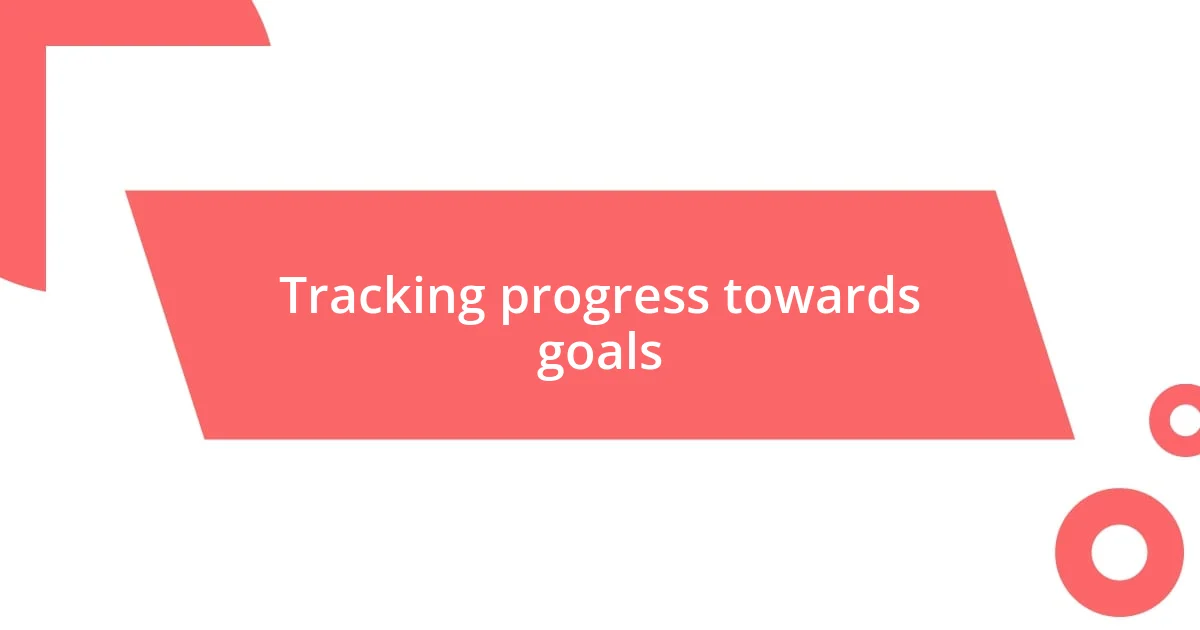
Tracking progress towards goals
Tracking progress towards goals is a vital aspect of my creative process. I remember one project vividly, where I used a simple spreadsheet to log weekly engagement metrics. Watching those numbers fluctuate was like riding a rollercoaster—some weeks were exhilarating, while others were a bit disappointing. Yet, it was in those dips that I truly learned to analyze what worked and what didn’t. Have you ever had that kind of learning moment?
I also employ tools like social media insights and analytics software. After my recent release, I dedicated time to dissecting which posts drove the most interaction. The thrill of discovering that behind-the-scenes content resonated much more than promotional snippets was enlightening. It informed my strategy moving forward, reminding me that engagement isn’t just about what I want to share, but what my audience actually craves. This two-way dialogue keeps my goals dynamic and meaningful.
Regular check-ins with my goals are a game changer. I schedule bi-weekly reviews, during which I ask myself tough questions: Am I on track? What adjustments should I make to stay aligned with my objectives? During one reflection, I realized that while I aimed for a lofty target of playlist placements, I hadn’t nurtured those relationships as I should have. This honesty not only helps steer my focus but also fuels my determination to improve continuously. How do you keep yourself accountable for your goals?
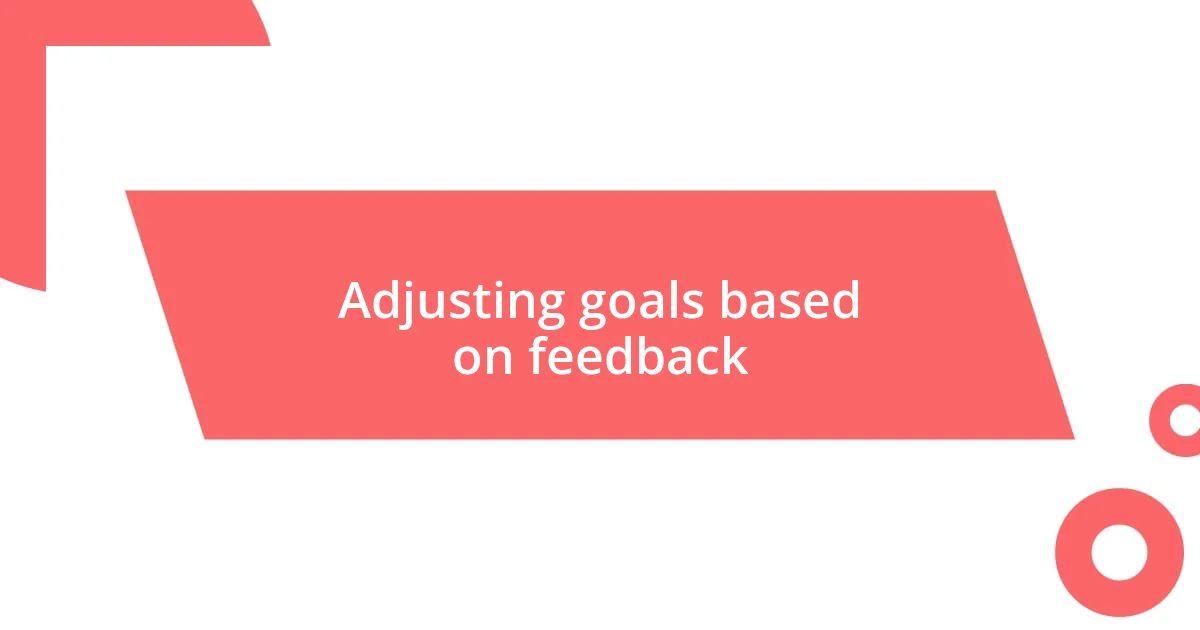
Adjusting goals based on feedback
Adjusting my goals based on feedback is something I’ve come to embrace wholeheartedly. After releasing my last EP, I received direct critiques that highlighted areas I hadn’t considered. Initially, it stung to hear that a few tracks weren’t resonating as I expected. However, instead of dismissing those comments, I took them to heart. It pushed me to reevaluate my sound and made me realize that feedback can be a stepping stone to growth, rather than a setback. Have you ever felt that initial sting only to find a lesson hidden within it?
I remember a specific instance where I underestimated the importance of my audience’s emotional connection to a song. Feedback revealed that while the production was strong, the lyrics fell short of conveying the intended message. This realization prompted me to dive deeper into the writing process, focusing not just on crafting catchy hooks, but on telling a story that resonates. Adjusting my goals to prioritize authentic connections made a marked difference in my subsequent release. How often do you reassess your creative approach based on others’ perspectives?
In my experience, remaining open to that kind of input fosters a stronger relationship with my audience. After another release, I found myself engaging more actively with listeners’ suggestions on social media. Their insights became a part of my artistic journey, influencing everything from sound choices to promotional efforts. This not only improved my content but solidified the bond I have with my fans. Feedback allows me not only to adjust goals but to co-create an experience with the people who appreciate my work. Isn’t it fascinating how collaboration can transform your vision?
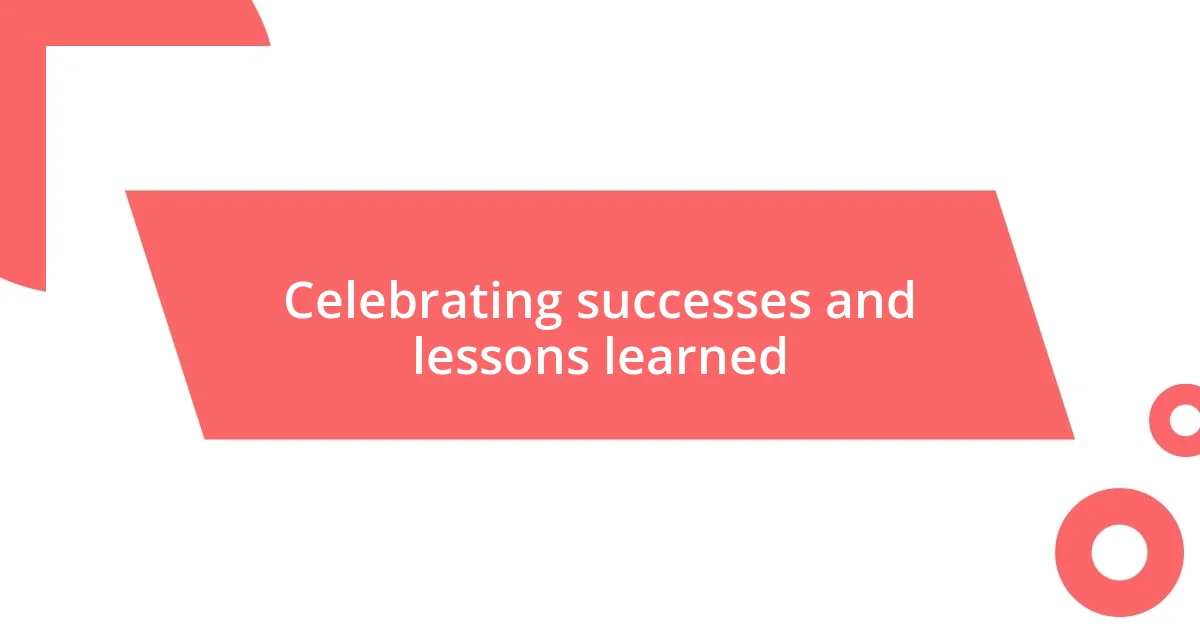
Celebrating successes and lessons learned
I can’t overstate how crucial it is to celebrate the victories, both big and small, throughout my creative journey. When I recently hit a milestone of streaming a certain number of listens on a release, I felt an overwhelming wave of gratitude and joy—it wasn’t just a number; it felt like validation from the universe. Sharing that moment on social media with my audience not only enhanced my connection with them but also shifted my perspective on success. How do you celebrate your achievements?
On the flip side, reflecting on the lessons learned carries just as much weight. After a project fell short of my expectations, I was initially disheartened and questioned my abilities. Yet, that moment of vulnerability pushed me to dig deeper into what had gone wrong. I realized that I had neglected to engage my audience during the production phase; I was so focused on creating the perfect track that I lost touch with their evolving tastes. Have you ever faced a setback that forced you to reassess your approach?
Embracing both successes and setbacks has made me appreciate the full spectrum of my creative process. After acknowledging my wins, I like to map out practical changes based on what didn’t work. This continuous loop of learning and celebrating has transformed how I set goals. It creates a rich tapestry of experiences that not only fuels my creativity but also empowers me to aim higher with every release. Don’t you think there’s beauty in both the triumphs and the lessons, shaping us into better creators?
